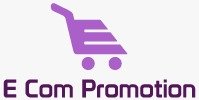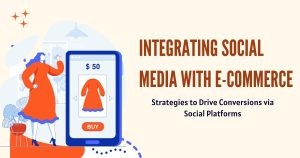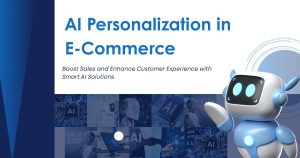What Is E-Commerce and Internet Marketing? A Beginner’s Guide

What do these two words–E-commerce and Internet Marketing -really mean? More importantly, based on your “Effects of Business” in digital times strategy, where is this modification lead to success?
What is E-Commerce?
E-commerce, which stands for electronic commerce, means purchasing and selling goods or services online. It removes the necessity of a physical storefront and allows businesses to function entirely on the web, opening up creation potential for such companies in world markets with relative ease
Key Types of E-Commerce Models
E-commerce is not a one-size-fits-all concept. Here’s a breakdown of the most common e-commerce business models:
- B2C (Business-to-Consumer): This involves businesses selling directly to individual customers. Examples include Amazon, Walmart, or your favorite online boutique.
- B2B (Business-to-Business): Here, businesses sell goods or services to other businesses, like wholesale suppliers or software companies (think Slack or HubSpot).
- C2C (Consumer-to-Consumer): Platforms like eBay, Etsy, or Facebook Marketplace facilitate transactions between individuals.
- C2B (Consumer-to-Business): Individuals sell their skills, products, or services to businesses, as seen with influencer sponsorships or freelance services via Upwork.
Benefits of E-Commerce
- Global Reach: Sell to customers worldwide without opening physical stores.
- Lower Operational Costs: Reduce overhead costs associated with renting or maintaining a physical storefront.
- Convenience: Allow customers to shop 24/7 from any device.
- Scalability: Easily expand your product range or target new demographics with online tools.
What is Internet Marketing?

Internet marketing also referred to online marketing is the tactics and techniques which help in promoting a products new (in serviceable phrase). Offering out brand awareness, getting traffic with income potentials converts more likely prospects into customers. of conversion ratios
Compared to traditional media such as TV or print ads that broadcast to one there s no sound or picture out at all – except for the typewriter… With digital platforms, such as an Internet business operation may offer free marketing tools like search engine optimization (SEO). These make it possible for messages only most rapidly responded by people who are likely to buy instead!
The Pillars of Internet Marketing
Below are some common tools and strategies businesses use in internet marketing:
- Search Engine Optimization (SEO): Optimizing your website to rank higher in search engine results for relevant keywords. For example, if your business sells eco-friendly clothing, you’d want to rank for terms like “sustainable fashion.”
- Content Marketing: Creating valuable blog posts, videos, infographics, or social media posts to engage and inform your audience while positioning your brand as an authority.
- Social Media Marketing: Leveraging platforms like Instagram, Facebook, and LinkedIn to connect with your audience, promote products, and even provide customer support.
- Pay-Per-Click Advertising (PPC): Running paid campaigns on Google Ads or social platforms to attract targeted visitors.
- Email Marketing: Sending personalized emails to engage with existing customers or re-engage past visitors by sharing offers, newsletters, or updates.
- Affiliate Marketing: Partnering with third-party individuals or businesses who promote your product in exchange for a commission on sales.
Why Internet Marketing is Critical in the E-Commerce Landscape
Without internet marketing, your e-commerce platform is like a hidden gem that no one knows exists. It ensures that your products and services reach the right people at the right time, significantly boosting your sales and visibility.
Imagine this scenario: you launch an e-commerce website that sells artisanal coffee. While your product may be extraordinary, how would people even find your store without efforts like targeted ads or engaging social content? Internet marketing bridges that gap between an incredible product and its ideal audience.
How E-Commerce and Internet Marketing Work Together

E-commerce and marketing are two sides of the same coin. To achieve long-term business success, these two strategies must be fully integrated. Here’s how the synergy works:
- Driving Traffic to Your Store: Internet marketing tools like SEO and social media campaigns bring visitors to your e-commerce website.
- Converting Visitors into Customers: With smart marketing tactics such as abandoned cart emails and limited-time discounts, you encourage visitors to make a purchase.
- Customer Retention: Internet marketing doesn’t stop after the sale. Loyalty emails, personalized promotions, and active social channels help retain customers and foster repeat business.
Real-World Examples of E-Commerce Powered by Internet Marketing
- Amazon: The king of e-commerce relies heavily on internet marketing strategies, such as targeted ads based on user behavior, email marketing for personalized recommendations, and SEO for product rankings.
- Spotify: This subscription-based music service combines e-commerce with content-driven internet marketing by consistently engaging users through playlists, paid ads, and interactive campaigns.
- Warbly Parker: This eyewear brand runs influencer collaborations, PPC campaigns, and detailed email marketing efforts to build traffic and drive sales on their e-commerce platform.
Is E-Commerce and Internet Marketing Right for Your Business?
Not every business will see the same results when adopting e-commerce and internet marketing strategies, but most can benefit significantly from even basic steps. Whether you’re a small business owner branching into online retail or an established company exploring digital transformation, investing in these tools can streamline operations, expand reach, and boost profits.
Tips for Getting Started
- Ensure your e-commerce site is user-friendly, mobile-optimized, and fast-loading.
- Prioritize customer reviews and testimonials for social proof.
- Start small with affordable online marketing campaigns and scale as you see measurable results.
- Use analytics tools to continually refine your strategies based on real data.
Take Your Business Online
When starting ecommerce and online marketing, it exhausts you at first. but with proper tactics, the right tools and a conscious approach to business can help bring fresh chance for developing your business. You will get even closer with old friends too!
Still confused how to launch? Examine our detailed materials and even call in a professional to integrate these strategies 。





